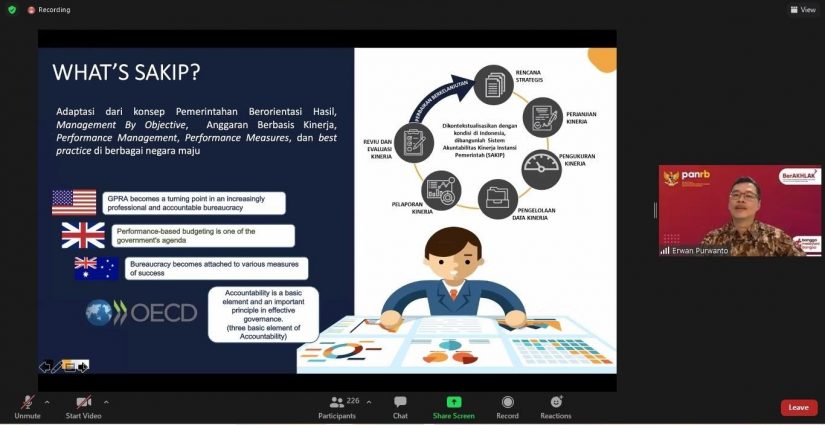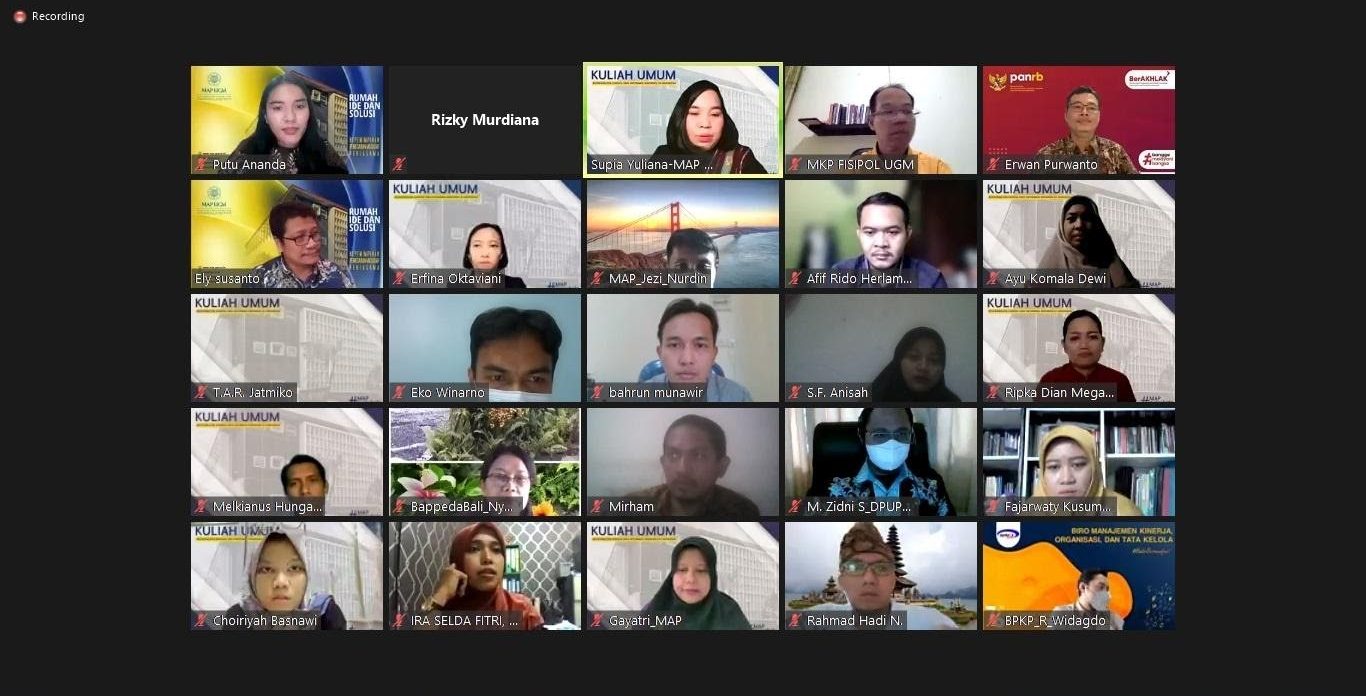
Yogyakarta, August 19th 2021─The Master of Public Administration (MAP) of FISIPOL UGM held another public lecture with the title ‘Performance Accountability and Bureaucratic Reform in Indonesia’. This event presents guest lecturer Prof. Dr. Erwan Agus Purwanto, M.Si who currently serves as Deputy for Bureaucratic Reform, Apparatus Accountability, and Supervision of the Ministry of Administrative and Bureaucratic Reform. On this occasion, the event was held online and was attended by 270 participants. In general, the discussion in this event discussed two main interrelated topics: bureaucratic reform and worker accountability. In addition, this event also discussed various programs that can be carried out for efforts to reform the bureaucracy and increase worker accountability.
Starting this event, the opening remarks were delivered by the Head of the MAP Masters Study Program, Ely Susanto, MBA, Ph.D. In his speech, he said that the public lecture was a routine activity organized by MAP Fisipol UGM. In this case, the activities held are expected to become a discussion forum capable of producing solutions and recommendations for improvement and handling of existing problems.
Furthermore, entering the core session of the general lecture, the moderator conveyed several points of discussion in this afternoon’s discussion and then continued with the presentation of material by Prof. Erwan. On this occasion, Prof. Erwan said that bureaucratic reform and worker accountability are two things that intersect. In this case, the bureaucracy is a tool to achieve the goals that have been set, such as the vision and mission conveyed by the President of the Republic of Indonesia. No matter how good a goal is, if there are no adequate tools, efforts to achieve it will never happen.

As an effort to support the bureaucratic reform program, the ministry of PAN RB designed a program, namely the Government Agency Performance Accountability System (SAKIP). The existence of this system is related to the management of the public sector to support the state’s goal, namely the welfare of the community through good governance in the form of result-oriented government. In simple terms, a result oriented government can be likened to people planning a trip: how do we think now, where are we going later, how to get there and what indicators to measure progress such as seeing how to use public funds that can generate benefits for achieving prosperity of the Indonesian society.
